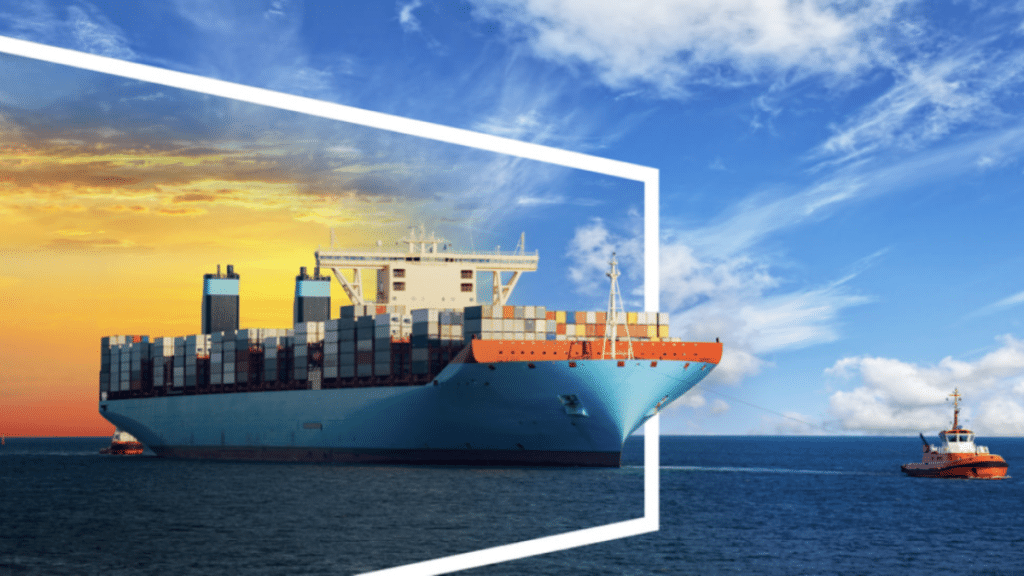The maritime industry is a cornerstone of global trade and transport, handling over 90% of the world’s trade by volume.
The continuous and efficient operation of the millions of vessels traversing our oceans is crucial, not only for maintaining the flow of goods across borders but also for the stability of global economies.
As the global focus on sustainability intensifies, the shipping industry, which accounts for approximately 3% of global emissions, faces increasing pressure to reduce environmental impacts and adopt more efficient practices.
This has spurred the need for innovative ship management solutions that can enhance operational efficiency while meeting stringent environmental standards. From leveraging cutting-edge technologies to adopting greener fuels and enhancing crew training, the industry is on the cusp of a transformative shift.
In this article, we will explore several advanced ship management practices that have the potential to redefine maritime operations. These next-generation strategies not only aim to boost efficiency and safety but also significantly decrease the environmental footprint of shipping activities, paving the way for a more sustainable future in maritime logistics.
What is Ship Management?
Ship management encompasses a variety of processes that are essential for the seamless operation and maintenance of sea-going vessels and ocean-based fixed rig environments.
The cost of specialist services and repairs can be substantial for ship owners, making the role of a ship management company essential. These companies provide invaluable support by overseeing all aspects of vessel management, which helps to reduce operating costs and maintain high standards of compliance and safety. Ship management services are typically contracted by either individual ship owners or organisations managing fleets globally.
Their key responsibilities include:
- Ensuring compliance with international and local maritime regulations and laws.
- Providing necessities such as fresh food and water for voyages.
- Conducting essential and routine repairs and maintenance.
- Adhering to strict safety guidelines and standards.
- Optimising route planning to enhance efficiency.
- Ensuring robust security measures and emergency/disaster readiness.
- Identifying potential operational efficiencies, such as fuel savings.
- Implementing sustainable practices to reduce environmental impact.
- Conducting audits before the sale or purchase of vessels.
Understanding Technological Advancements in Ship Management
In light of growing environmental concerns, the maritime industry faces an increasing demand for ship management solutions that not only meet operational needs but also comply with stringent environmental regulations.
Specialist ship management providers have risen to this challenge, offering innovative solutions that refine operational procedures and incorporate advanced environmental practices. These solutions ensure that fleets not only adhere to current regulations but are also well-equipped for future challenges.
Advanced Crew Training – A fundamental aspect of these next-generation strategies is the advancement of crew training. By harnessing technologies such as virtual reality (VR) and augmented reality (AR), training programmes now provide crew members with highly realistic simulations of onboard scenarios. This approach significantly enhances crew engagement and preparedness for real-world maritime challenges, thereby improving onboard safety and operational standards. These innovative training methods are crucial, providing seafarers with the skills necessary to excel in a rapidly evolving maritime environment, ensuring that the industry not only adapts but thrives under increased regulatory and environmental pressures.
Artificial Intelligence and Data Analytics – Some of the maritime industry’s most exciting innovations are in the field of Artificial Intelligence (AI). These advanced algorithms can process data from vessel sensors to predict maintenance needs and optimise operations, reducing the likelihood of unexpected breakdowns and extending equipment lifespan. In addition to this, AI can analyse historical and real-time data of routes, weather, traffic and geopolitical factors to aid in route optimisation. This can help to conserve fuel, cut emissions and support compliance with environmental regulations, making operations more sustainable.
Automated and Remote Operations – The adoption of automated systems and remote control technology marks a significant shift towards more efficient and safer maritime operations. By enabling vessels to be operated with fewer onboard staff, these technologies significantly reduce the likelihood of human error, which is especially beneficial for managing hazardous tasks. Remote monitoring also allows real-time oversight from shore-based centres, optimising maintenance and operational costs.
Digital Twin Technology – This technology revolutionises ship management by creating highly accurate virtual models of physical ships, simulating real-time operations for predictive maintenance and strategic planning. By continuously monitoring structural integrity and critical systems and identifying potential issues before they escalate into actual problems, it minimises downtime and enhances safety measures, preventing accidents and ensuring crew and environmental safety. In addition to this, digital twins enhance efficiency by allowing for the testing of various operational strategies without risk for effective strategic planning based on real data insights.
Sustainability-Driven Innovations – The shift toward alternative fuels like LNG, hydrogen and biofuels, along with the integration of renewable energy sources, underlines the industry’s proactive stance on climate change. Together with advanced waste management and ballast water treatment systems, these efforts significantly reduce the maritime sector’s environmental footprint.
Final Thoughts
As we look toward imminent technological transformations in ship management, the maritime industry is poised to continue its world-leading advancements in seafaring and ocean transport.
As the backbone of global trade, the maritime industry faces increasing pressure to reduce its environmental impact while maintaining operational excellence. Innovative ship management solutions, ranging from advanced crew training to AI-driven data analytics and digital twin technology, offer promising avenues for achieving these goals.
By harnessing cutting-edge technologies and embracing sustainable practices, the industry is on track to redefine maritime operations. These forward-thinking strategies not only aim to boost efficiency and safety but also to significantly reduce the environmental footprint of shipping activities, paving the way for a more sustainable future in maritime logistics.
